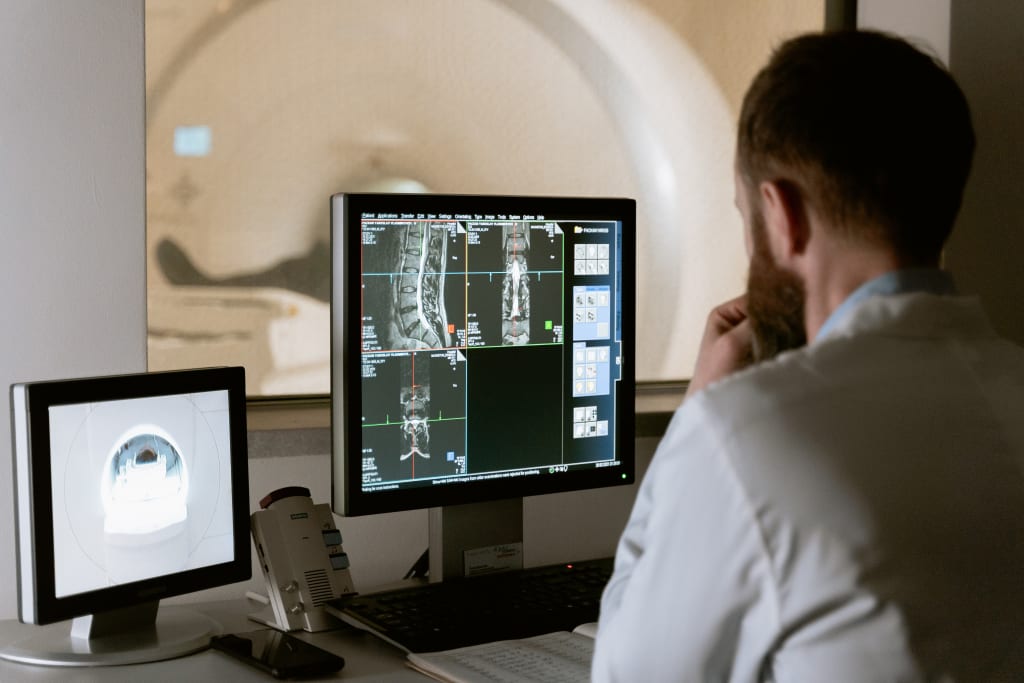Understanding Alzheimer's Disease
Symptoms, Effects, and Treatment Breakthroughs

Alzheimer's sickness, it's a dynamic neurodegenerative problem, represents a huge worldwide wellbeing challenge. With no known cure, it affects millions of people worldwide, leading to cognitive decline, memory loss, and ultimately, a loss of independence. In this article, we delve into the effects of Alzheimer's disease on individuals and their families and explore the latest advancements in its treatment.
Understanding Alzheimer's Disease
Alzheimer's disease primarily affects the brain, leading to the formation of abnormal protein structures called beta-amyloid plaques and neurofibrillary tangles. These aggregates disrupt communication between neurons, causing their dysfunction and eventual death. As the disease progresses, it results in the gradual deterioration of memory, thinking abilities, and behavior.
Effects on Individuals:
1. Cognitive Decline: One of the hallmark effects of Alzheimer's disease is the decline in cognitive abilities. Individuals may struggle with memory loss, impaired judgment, difficulty in problem-solving, and a reduced capacity for learning and retaining new information.
2. Emotional and Behavioral Changes: Alzheimer's can bring about significant emotional and behavioral alterations. Patients may experience mood swings, depression, anxiety, agitation, and even aggression, making it challenging for them to navigate daily life and relationships.
3. Loss of Independence: As the disease advances, individuals with Alzheimer's gradually lose their ability to perform everyday tasks independently. They may require assistance with personal care, household activities, and managing finances, leading to increased dependence on caregivers.
4.Social Isolation: Alzheimer's often leads to social withdrawal due to communication difficulties and cognitive impairment. This isolation can contribute to a decline in mental health and exacerbate the progression of the disease.
Advancements in Treatment:
While a definitive cure for Alzheimer's disease remains elusive, researchers have made remarkable progress in understanding the condition and developing potential treatments. Here are some of the promising areas of research:
1. Drug Therapies: Several drug candidates are undergoing clinical trials, aiming to modify the disease's progression or alleviate its symptoms. These include medications targeting beta-amyloid and tau proteins, inflammation, and neurotransmitter imbalances in the brain.
2. Lifestyle Modifications: Adapting a healthy lifestyle has shown promise in reducing the risk and progression of Alzheimer's disease. Regular exercise, a balanced diet rich in fruits, vegetables, and omega-3 fatty acids, along with mental stimulation through cognitive exercises, may help maintain brain health and delay cognitive decline.
3. Non-Pharmacological Interventions: Non-drug interventions such as cognitive training, music therapy, art therapy, and reminiscence therapy have demonstrated positive effects in improving cognitive function, reducing behavioral symptoms, and enhancing overall well-being in Alzheimer's patients.
4. Precision Medicine and Early Detection: Advances in biomarker research enable the identification of individuals at high risk of developing Alzheimer's disease. Early detection and intervention can help initiate personalized treatment plans, potentially slowing down the progression of the disease.
5. Support for Caregivers: Alzheimer's places a significant burden on caregivers, both emotionally and physically. Recognizing the importance of caregiver support, various organizations provide resources, counseling, and respite care to help manage the challenges associated with caregiving.
what are the symptoms???
The symptoms of Alzheimer's disease can vary from person to person and progress over time. Here are some common symptoms associated with the different stages of the disease:
Early Stage:
1. Memory Loss: Difficulty remembering recent information, such as conversations, events, or appointments. Often, individuals may forget names or familiar objects.
2. Challenges with Problem-Solving and Planning: Difficulty concentrating, making decisions, and solving problems. Handling finances or following a recipe may become increasingly challenging.
3. Disarray with Overall setting: Forgetting about dates, seasons, and the progression of time. Individuals may also get lost in familiar surroundings.
4. Misplacing Items: Putting objects in unusual places and struggling to retrace steps to find them. This may result in accusing others of stealing.
5. Decreased or Poor Judgment: Exhibiting changes in judgment and decision-making, such as falling for scams or neglecting personal hygiene.
Moderate Stage:
1. Increased Memory Loss: Memory deficits become more severe, and individuals may forget significant personal details, such as their own address or phone number. They may over and over pose similar inquiries.
2. Language and Communication Problems: Difficulty finding the right words, following conversations, and participating in discussions. Reading and writing skills may also deteriorate.
3. Confusion and Disorientation: Becoming increasingly disoriented, especially in unfamiliar environments. Some individuals may not recognize close family members or friends.
4. Behavioral and Mood Changes: Exhibiting changes in behavior and personality, such as increased agitation, anxiety, restlessness, or even aggression. Depression and social withdrawal may also occur.
5. Difficulty with Routine Tasks: Struggling with activities of daily living, such as dressing, bathing, and eating. Assistance may be required to maintain personal hygiene and manage household chores.
Severe Stage:
1. Severe Memory Loss: Losing awareness of recent experiences and surroundings. Individuals may have difficulty recognizing themselves and others.
2. Decline in Physical Abilities: Experiencing significant physical decline, including mobility issues, difficulty walking, and eventually becoming bedridden. Incontinence may also occur.
3. Communication Challenges: Communication becomes extremely limited, with individuals using fewer words or phrases and relying on non-verbal cues or gestures.
4. Increased Dependence: Requiring round-the-clock assistance for basic needs such as eating, dressing, and personal care. Full-time caregiving or institutional care is often necessary.
5. Loss of Swallowing Reflex: In the late stages, individuals may have difficulty swallowing, leading to an increased risk of aspiration pneumonia and other complications.
It's important to note that while these symptoms are commonly associated with Alzheimer's disease, they can also occur in other medical conditions. If you or someone you know is experiencing these symptoms, it is crucial to consult a healthcare professional for an accurate diagnosis and appropriate care.
Conclusion:
Alzheimer's disease is a complex and devastating condition, affecting not only individuals but also their families and communities. While a definitive cure remains elusive, significant strides are being made in understanding the disease and developing innovative treatment approaches. It is crucial to continue supporting research efforts, raising awareness, and providing compassionate care to enhance the lives of those affected by Alzheimer's. With continued dedication and advancements, there is hope for a future where Alzheimer's disease is effectively prevented, slowed, or even cured.
About the Creator
Enjoyed the story? Support the Creator.
Subscribe for free to receive all their stories in your feed. You could also pledge your support or give them a one-off tip, letting them know you appreciate their work.






Comments
There are no comments for this story
Be the first to respond and start the conversation.